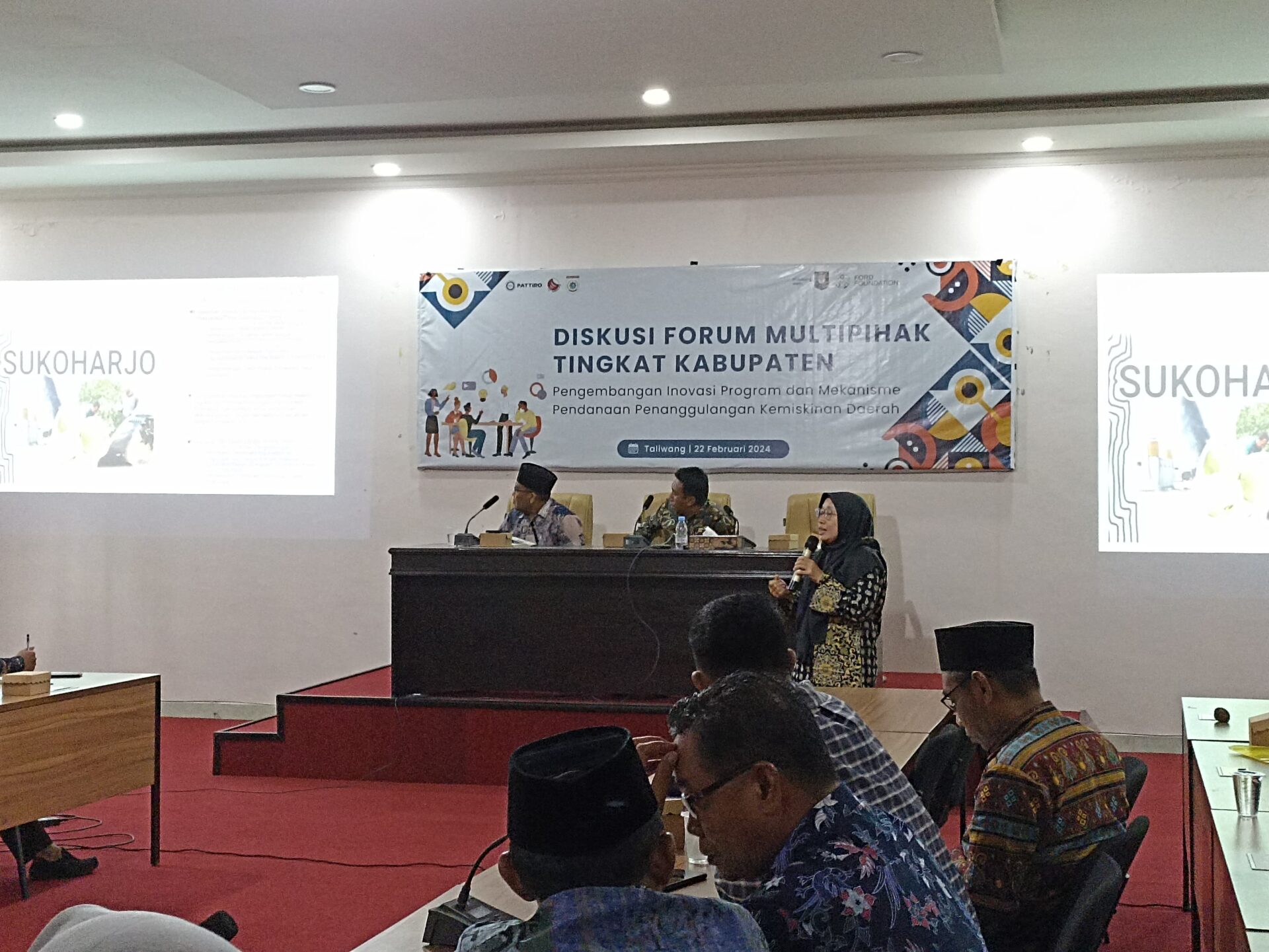
The discussion on the regional government bill has entered crucial stages. Currently the Regional Government Bill is being discussed by the DPR together with the Government, at the Panja level. The important and fundamental point is at this stage. Various agreements have been made. However, while the current process is running, the public’s critical attitude towards the substance and process of deliberating the bill must not be lost. Relying on full trust in the DPR and the Government – in this case the Panja Pemda RUU Pemda from the DPR and the Ministry of Home Affairs – should not be done. Because it is possible, as we all know, the level of criticality (critical attitude) of the relationship between the two parties has been dulled. It has been proven that the nature of the relationship between the two is more collaborative than critical. And this can also be seen in the Problem Inventory List (DIM) of the Regional Government Bill obtained by PATTIRO.
In terms of articles that are fundamental and crucial, namely crucial articles related to regional government affairs, authorities and positions, the DPR appears to be permissive. They only act critically when the discussion enters into articles with political nuances. Especially those related to its interests as a political party. As they pointed out in the articles relating to regional government administration and regional head elections.
After conducting studies, PATTIRO found various articles that tended to negate and threaten regional democratization, decentralization, and the nation’s reform process. PATTIRO’s articles are classified into several groups, namely:
A. Anti Decentralization Group.
B. Anti-Corruption Eradication Group.
C. The Governor’s Authority Abuse Group.
A. Group of Anti-Decentralization Articles.
In this group there are articles related to two key concepts, namely Government Affairs and Administrative Areas. Namely in Article 1 number 5 and number 13, Article 20 to article 32.
General Government Affairs is a type of Government Affairs which has a very vague definition and scope and is prone to multiple interpretations. It states that General Government Affairs is “government affairs which are the authority of the President as the head of government” (Article 20 paragraph (5)). This definition is the same as the meaning of Government Affairs itself, which is “government power which is the authority of the President whose implementation is carried out by state ministries, non-ministerial government agencies, and regional governments to protect, serve, empower, and prosper the community” (Article 1 number 5). Apart from General Government Affairs, Government Affairs is also divided into Absolute Government Affairs and Concurrent Government Affairs. These last two types of affairs are clearly defined, firm, and sectoral.
For Administrative Regions, even though its existence has been around for a long time, the encouragement of the Regional Government Bill to expand the scope of Administrative Regions so that it reaches the district/city level has caused its presence to threaten decentralization and local democratization.
The presence of these two key concepts turned out to be a reincarnation of the authoritarian New Order regime in the Regional Government Bill. These two key concepts are the soul and spirit of Law No. 5 of 1974 concerning Fundamentals of Local Government. Even though it is known, Law 5/1974 is a legal product that was formed in an authoritarian political formation and was prepared on the logical basis of a security-based approach.
The government has consciously used the logic of a security approach in the material substance of the Regional Government Bill. The trauma of the times of repression is ignored. The process of democratization of the nation will be hampered and returned to the past.
The logic and security approaches used in the Regional Government Bill are confirmed through 3 (three) security approach instruments. The three instruments are:
- Central apparatus in the regions to assist provinces, districts and cities in implementing General Administration Affairs (Article 32 paragraph (3)). The central apparatus in this area will be in the form of a Regional Administrative Secretariat, which will have its own organizational structure and work procedures. Nonetheless, the budget burden remains borne by the provincial and district/city APBD.
- The governor’s apparatus is the Representative of the Central Government, who will be assisted by 5 (five) deputies (Article 79 paragraph (1) and paragraph (2)). The governor’s apparatus is in the form of a Deputy Central Government Secretariat, which is functionally and structurally independent from the Provincial Regional Secretariat. Even so, the leadership of the Secretariat is concurrently held by the Regional Secretary as Secretary to the Governor, and the budget is borne by the provincial APBD.
- The Regional Leadership Coordination Forum, which is chaired by regional heads and sub-district heads, according to their respective levels of government (Article 87 paragraph (1), paragraph (3), and paragraph (6). This forum is a new form of Muspida which is revived and legalized through the Bill local government.
What is the rationale of the Government so that it tends to prioritize a security approach in building control structures and monitoring evaluations of provincial and district/city governments?
B. Anti-Corruption Eradication Group.
The regional government bill, apart from taking a security approach, also provides legal protection to regional heads who are indicated to be corrupt and abusing their authority. There are two key articles that stipulate and provide legal immunity to regional heads. namely Article 71 and Article 269.
Article 71 regulates legal protection for regional heads who have terminated their term of office or have been assigned a certain position by the President, so a thorough examination of the financial aspects and regional assets is carried out by the competent authority. The results of the report by the competent authority, which stated that there was no unlawful act, became the basis for granting legal immunity to the regional head. What if it turns out that at a later date a criminal act was discovered during his tenure?
Likewise in Article 269, which protects regional heads from prosecution for criminal acts due to failure to achieve regional innovation which has become their government policy. The argument for legal protection due to failure to implement policies becomes blurred. Failure to achieve public policy targets is a matter of administration and competence. State financial losses arising from public policy failures are logical as long as they are administrative and competent. However, if the loss to state finances is caused due to the aim of enriching oneself and one’s group, then this is included in the realm of a criminal act.
C. The Governor’s Authority Abuse Group.
The province’s position in the Regional Government Bill was strengthened. The hope is that the role of monitoring and evaluation, as well as government control from the Center can be alleviated by delegating this authority to the provinces. However, it turns out that the Regional Government Bill went too far. Instead of providing adequate authority, this Regional Government Bill tends to give governors tasks that go beyond the limits of their powers which have the potential to be abused.
This can be seen in the following articles:
- Article 76 paragraph (5) and Article 77 letter e. Governors in these two articles are given the authority to impose sanctions on regents and mayors. Even though besides being a representative of the Central Government, the governor is also the head of the regional government who is elected through regional elections and comes from a political party. The governor’s political tendencies in dealing with regents and mayors who have different political interests and political affiliations can be very large. This article is predicted to trigger violent conflict and political escalation.
- Article 77 letter b and letter i. Governors are given the authority to cancel regional regulations and regulations of district/city regional heads, and draft regional regulations on sub-districts. This great authority makes the governor exceed the limits of his authority according to Law No. 12 of 2011 concerning the Formation of Legislation. Cancellation of laws and regulations under the law, such as draft regional regulations, regional regulations, and regional head regulations, can only be carried out by the Supreme Court (Article 9 paragraph (2) of Law 12/2011). And the regional government bill must refer to the principle of lex superiori, based on existing laws and regulations.
- Article 77 letter d. Governors are given the authority to ask regional apparatuses directly to deal with important and urgent issues. Even though this request was also addressed to regional heads, the governor’s direct contact with district/city regional apparatus made the governor’s area of intervention expand and widen. And has the potential to disrupt the internal work processes of the district/city bureaucracy. As it should be, at the district/city level the loyalty of regional apparatuses is only to the regents and mayors, and not to be disturbed by the governor’s intervention.
- Article 77 letter f. The governor is given the authority to give written approval to the investigation of members of the Regency/Municipal DPRD. This authority places the DPRD, as a political institution and a district/city community representative, in a subordinate position to the regional head at the provincial level. This is very different from the written approval for investigations of regents/mayors, which must be issued by the Minister. This authority shows discriminatory and different treatment even though the DPRD is a component of regional government at the district/city level.
- Article 77 letter g. Governors are given the authority to settle disputes between regencies/cities within their province. Settlement of disputes between districts/cities, in the context of this article, places the governor as a party distant from the issues in dispute. However, there is no regulated mechanism if the dispute is between the governor and the regent/mayor. It also does not explain how the dispute resolution mechanism is. The absence of these regulations has the potential to cause abuse of power from the governor.
On the commemoration of the 17th Regional Autonomy Day on 25 April 2013, PATTIRO reminded the public, the DPR and the Government, especially the Panja, not to agree on and determine the above articles.
For this reason, PATTIRO urges the DPR Regional Government Bill Committee, DPR Commission II, and the Government to:
- Eliminate General Administration Affairs, in Article 5 paragraph (1) and paragraph (2), Article 20 paragraph (5), Article 32 all paragraphs, and simply stipulate the content related to Article 48 concerning Obligations of Regional Heads and Deputy Regional Heads.
- Removing the expansion of Administrative Areas to regencies/cities, in Article 5 paragraph (2), Article 32 paragraph (4), and only stipulating provinces as Administrative Regions.
- Eliminate 3 (three) new security and bureaucratization approach instruments at the regional level (Administrative Regional Secretariat, Central Government Representative Secretariat, and Forkopimda).
- Clean up Article 71 from the element of granting legal immunity for officials, and stipulate Article 71 solely as a post-service audit arrangement for performance appraisal.
- Eliminate Article 269 so that none of the articles has the potential to be misused to provide legal immunity.
- The authority of the governor in imposing sanctions and resolving inter-regional disputes must be supplemented with rules regarding the complaint/objection mechanism from regencies/cities against sanctions and inter-regional dispute resolution decisions determined by the governor.
- Change the word “cancel” to the word “propose” in the sentence of Article 77 letter b and letter i concerning the governor’s authority to cancel regional regulations, regional regulations, and draft district regional regulations.
- Legal products, regional regulations, can only be revoked/canceled by regional regulations, according to Law 12/2011 concerning the Formation of Legislation.
- Removing the authority of the governor in giving written approval to investigations of members of the Regency/Municipal DPRD.
- Removing the phrase “regional apparatus” in Article 77 letter d, so that the governor’s relationship simply ends with the regent/mayor.
- Added an article on continuous and measurable technical assistance for capacity building for regional governments at the provincial, district and city levels who have the status of a new autonomous region and those who need it based on an assessment of the performance of the regional government.
- Adding articles on performance appraisal, organizationally, human resources, and managerially for provincial, district and city governments.
Jakarta, 24 April 2013
Sad Dian Utomo | executive director
saddian@pattiro.org | 0812 800 3045





